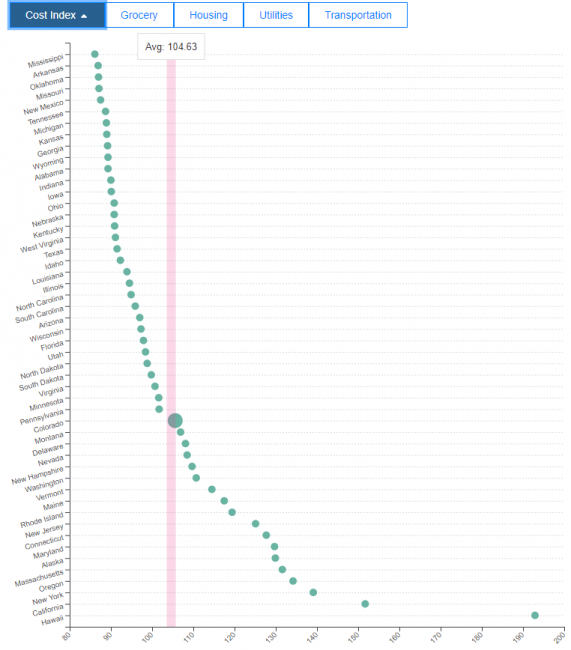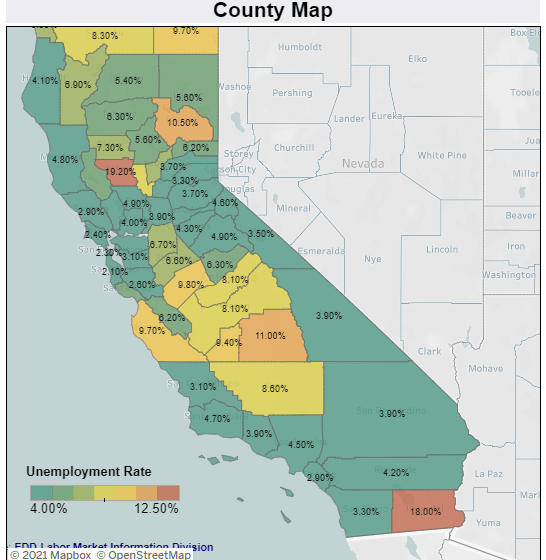The Other Problem With A National Minimum Wage -- The National Part
So a $15 national minimum wage will almost certainly be on the table in Congress this year, and if past such legislative efforts are any guide the Republicans will probably eventually go along in exchange for reducing the $15 to a lower number and slowing the rollout.
I have talked a lot about the negative effects of higher minimum wages on low-skill workers. Two good example background posts are here and here. I covered how a broad range of labor regulation hurts unskilled workers in a cover story for Regulation magazine a few years back. Unfortunately, in a country where the average American buys about $1000 in lottery tickets each year, the willingness to believe we can get something for nothing is strong.
But I want to talk specifically about a Federal minimum wage increase, where one other problem emerges. The best way to state this is -- how can one possibly set the same minimum wage for San Francisco at the same rate as one does for rural Mississippi? Here is one source for comparative state cost of living. Doing this by county would make the curve even wider.
Cost of living in Hawaii is more than 2x that of Mississippi. CA and NY are not far behind. A minimum wage that might comfortably be accommodated in San Francisco (and note even there the rise to $15 was ending service jobs in that city long before COVID), would be an economic disaster for rural Alabama. I don't tend to think primarily along racial lines as seems to be the case on the Left today, but basically this is a policy driven by rich white tech guys in San Francisco that is going to devastate the employment prospects of rural blacks.
Whatever one's misgivings about minimum wages, it is certainly true that allowing states to take the lead on setting minimum wages (counties would make even more sense) makes a lot more sense that trying to take action at the national level. Even with state action there are disparities. Look at this unemployment map of the rural counties in CA vs. the tech. enclaves in the Bay Area (the chart below is January 2020, I wanted to dial back pre-COVID). Those rural counties are being slaughtered by the $15 minimum wage. Just think about rural areas in states less costly than CA.
So a state by state approach is WAY better. There are three reasons, in increasing order of cynicism, why Democrats in Congress will still insist on a higher national minimum wage.
- Democrats in Congress believe they are carrying salvation to the powerless masses in Alabama who are held in slavery by state Republicans. Democracy and the "will of the people as expressed at the ballot box" are only sacred when it's our team in charge.
- Folks in Congress did not spend a career fighting to win a seat in that body only to find that there is something that would be best done by state legislators. They didn't work to get promoted to have LESS power (though that is exactly how the country was originally designed). This is the enemy of all Federalist notions
- The fact that a $15 minimum wage will devastate many rural areas, mostly Republican bastions, may be a feature and not a bug for some. Think of the $15 minimum wage as Democratic revenge at the heart of red states for the Trump reductions of SALT deductions in the tax code (which were a dagger at the blue state model).

